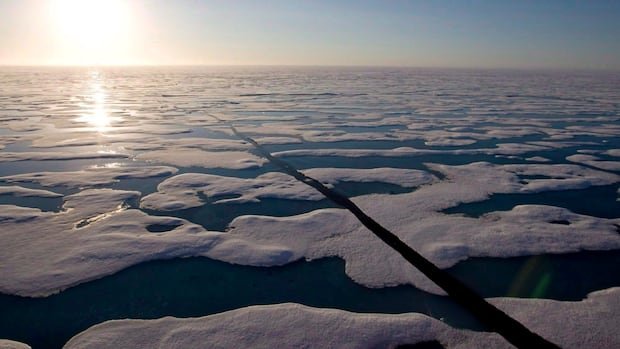Transport Canada has reduced its Arctic surveillance activities this summer, focusing on pollution, endangered whale protection, and marine safety, according to information obtained by CBC News. The decision to cut back on overflights in the region was made by senior department officials earlier this year, shifting the National Aerial Surveillance Program (NASP) to a more reactive approach. This change comes amid growing political and national security interest in the Arctic and follows a commitment made five years ago to deploy a drone for enhanced monitoring.
According to leaked documents and sources, the department opted for a “reactive posture” for the NASP during the spring, unless there is a specific operational need. The department’s acting director general of aircraft services stated in a note that there would be no presence in the Arctic this summer unless deployment is necessary. However, Transport Canada confirmed that aircraft will be dispatched to the Far North in case of emergencies only.
Hicham Ayoun, a spokesperson for Transport Canada, affirmed that NASP remains prepared to respond to incidents. The decision to adopt a reactive stance is reportedly linked to constraints on pilot overtime, delays in acquiring a planned drone program, and issues with an older Dash 7 turboprop aircraft. Ayoun acknowledged the overtime restrictions but denied that they impacted the surveillance program, emphasizing that overtime can still be authorized for emergencies.
Transport Canada was scheduled to procure an Israeli-made Hermes 900 Starliner drone from Elbit Systems Ltd for Arctic surveillance, with delivery expected in 2022. Despite public pressure, including calls from pro-Palestinian groups to cancel the purchase, the contract remains active. The aging Dash 7 aircraft previously used for Arctic patrols encountered technical problems, leading to the debate on the cost-effectiveness of repairs.
The Arctic region has become a focal point of geopolitical concern, with increasing activities by countries like China and Russia. The decision to conduct surveillance on a reactive basis coincides with the region’s heightened strategic importance, as highlighted by reports indicating rising ship traffic and accessibility due to melting ice. The Arctic Council data shows a significant uptick in ship entries in the region between 2013 and 2023, underscoring the growing relevance of Arctic security and surveillance measures.
The reduction in surveillance flights has raised concerns among experts like Michael Byers, emphasizing the importance of maintaining vigilance in the Arctic region. Byers noted the risks posed by increased maritime traffic and the need for continued surveillance to safeguard national sovereignty and security interests. Despite the challenges, he expressed surprise at the decision to cut back on surveillance efforts, given the region’s strategic significance and the relatively low cost associated with surveillance flights.

